Abstract
This study used an inductive research method known as grounded theory to develop a theory to describe owner response to the death of a pet. Participants were identified from 8 veterinary clinics in Wellington Country, Ontario. Eighty percent (8 of 10) of the practices approached agreed to participate and there was a 77% (44 of 57) participation rate by clients. Nondirective interviews were conducted with participants approximately 10 days following the death of their pet, and at 3, 6, and 12 mo thereafter. The theory developed suggests that people's reactions are best described as a social and psychological search for meaning. Factors that contributed to the search for meaning included societal values and norms, the cultural milieu of pet death, and the cultural milieu of veterinary medicine. Other factors, such as the participant's personal beliefs, life stage, critical life events, and animal attributes, either alleviated or aggravated the experience. The outcome for participants grieving the death of a pet was a self-governing approach to coping with the death. Practical implications and suggestions for veterinarians are presented.
Full text
PDF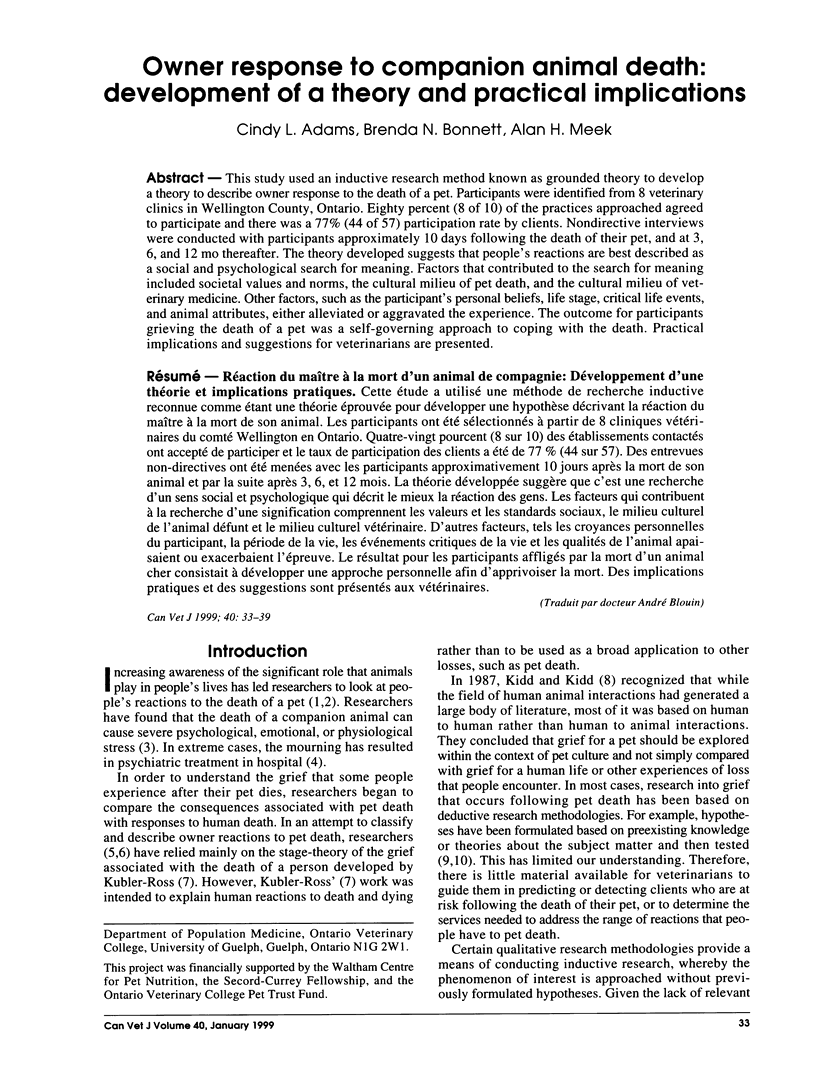
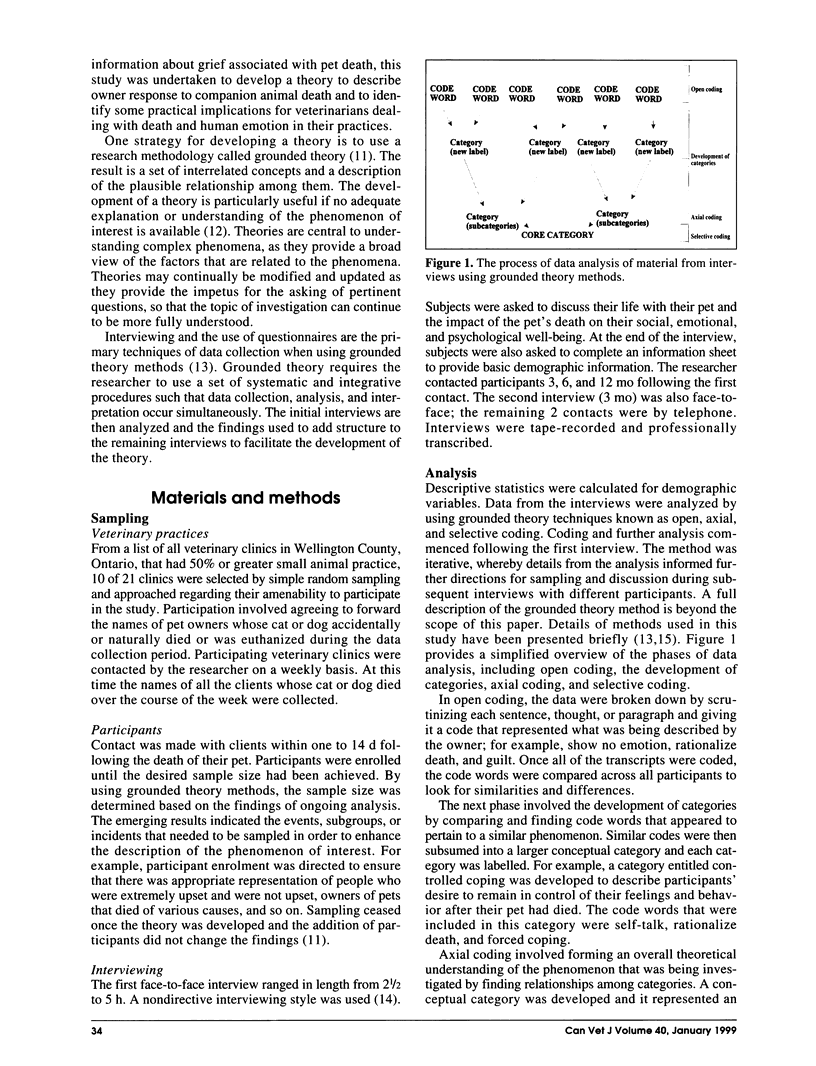
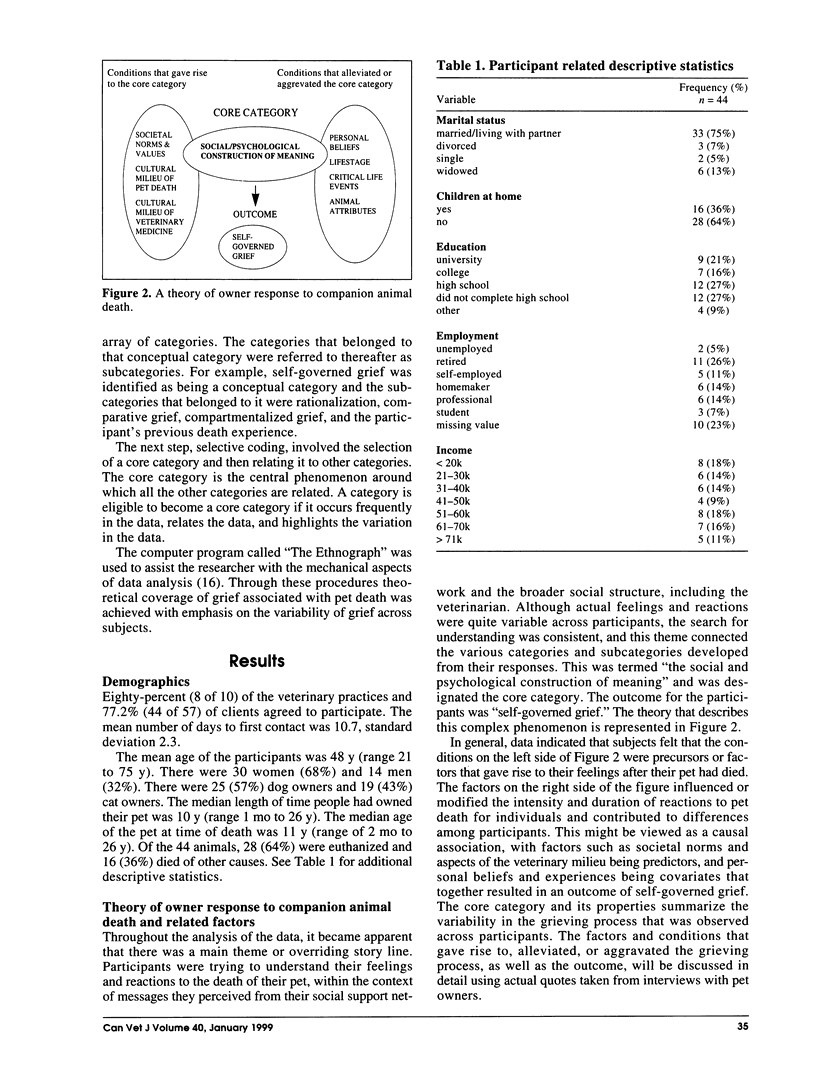
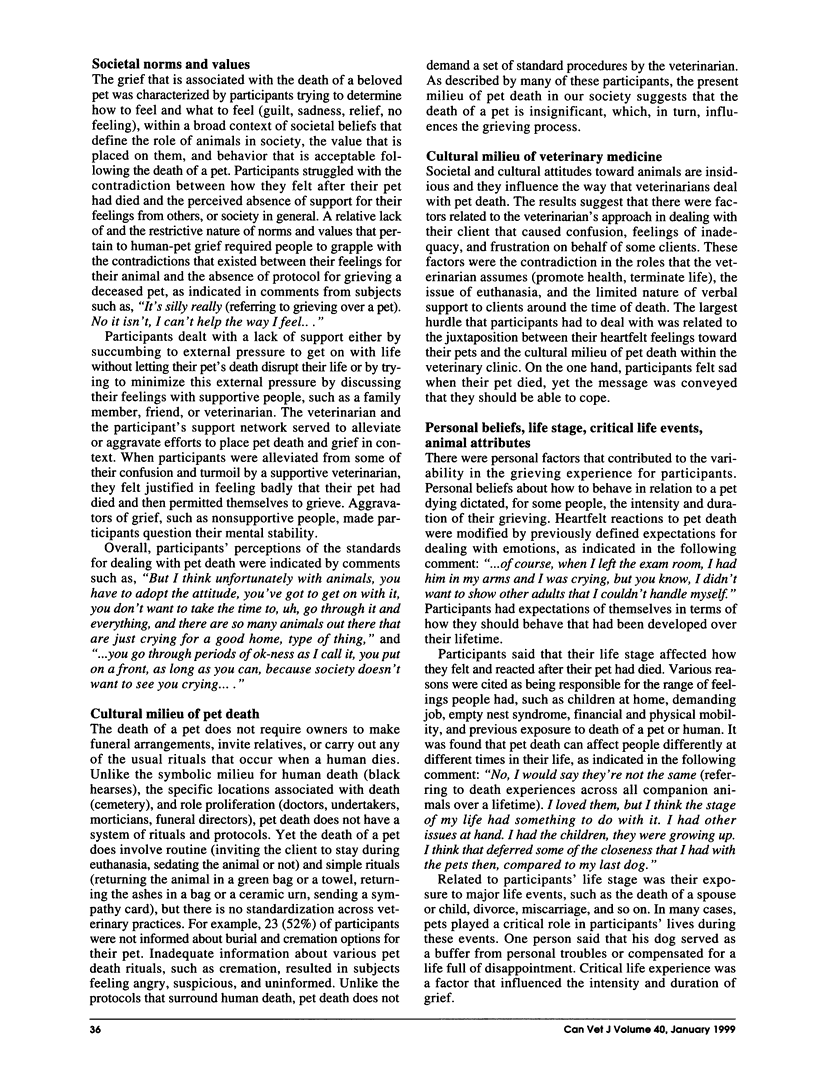
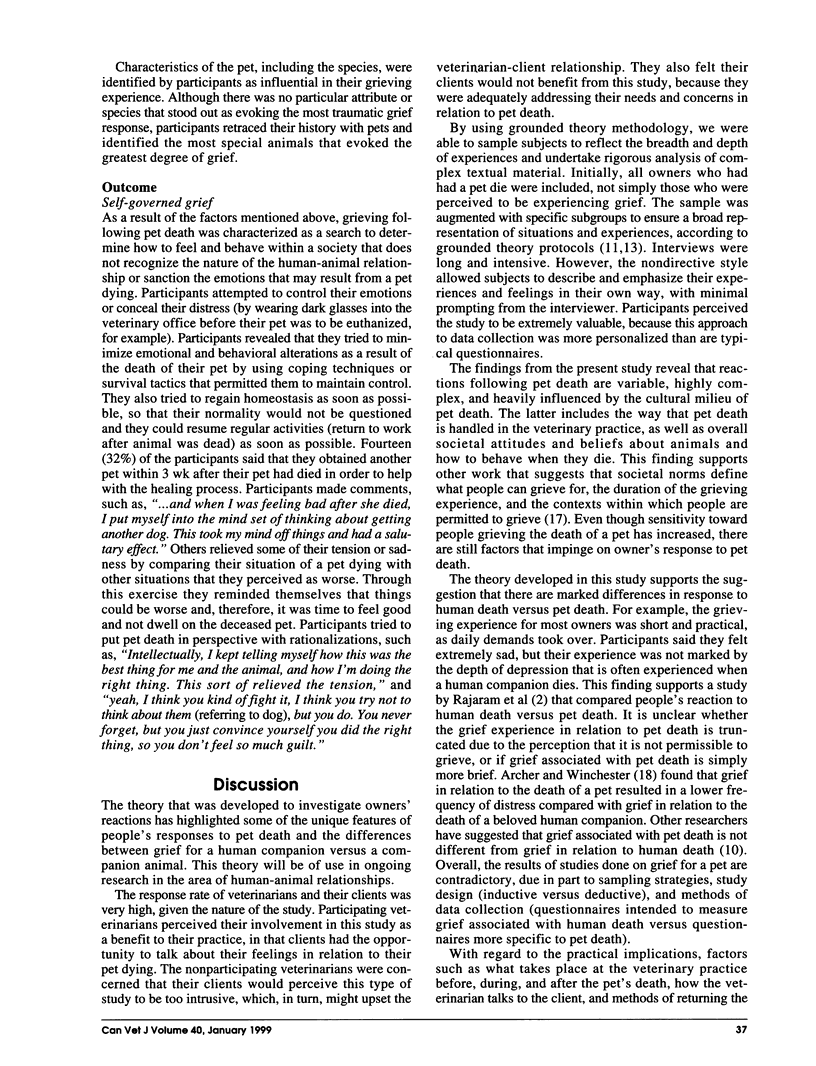
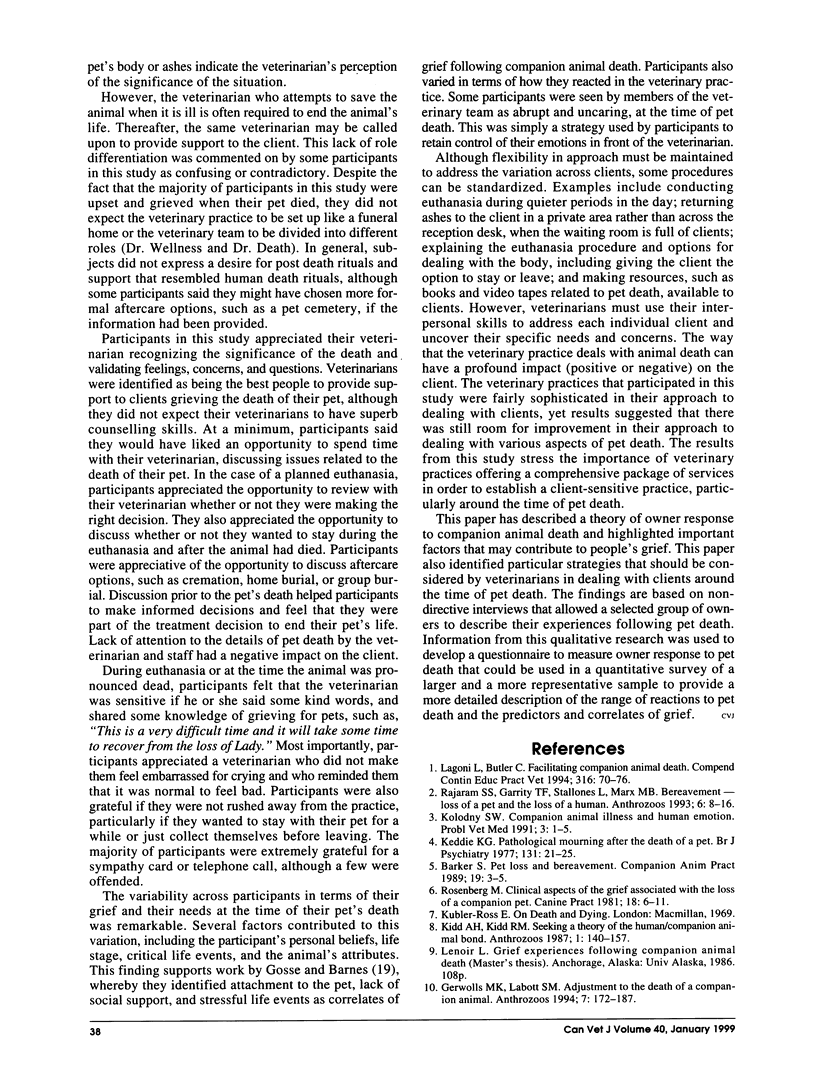
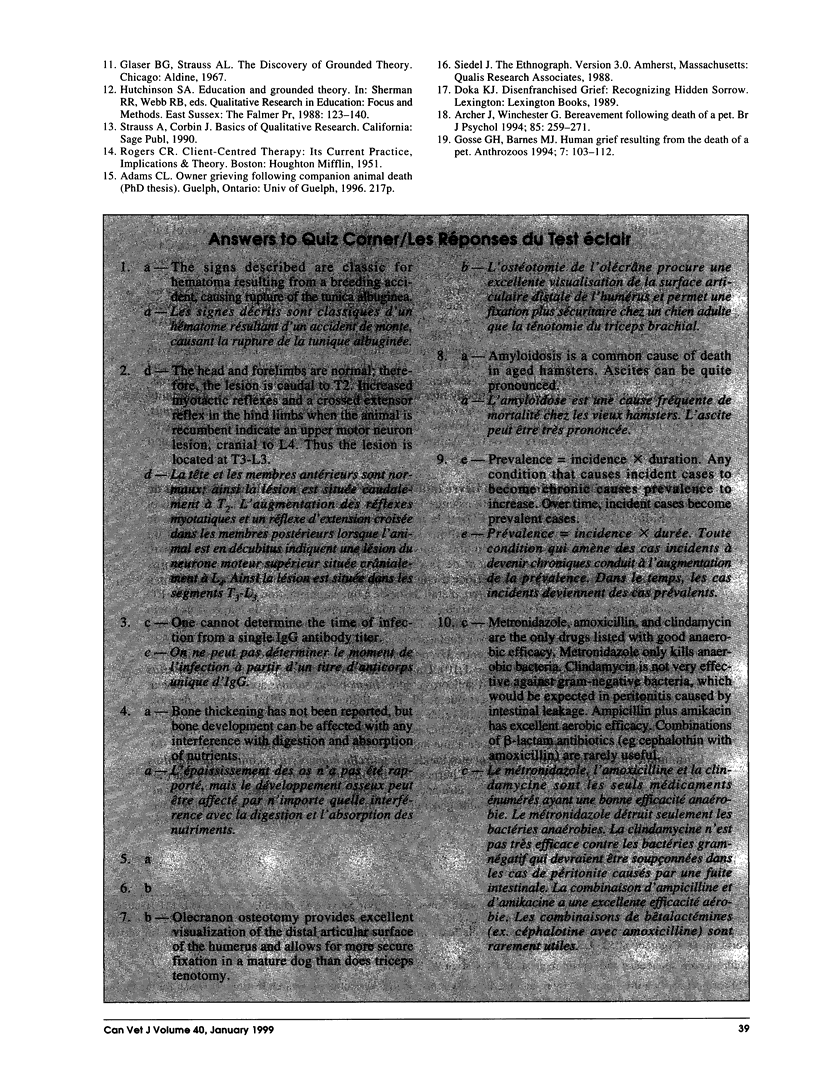
Selected References
These references are in PubMed. This may not be the complete list of references from this article.
- Archer J., Winchester G. Bereavement following death of a pet. Br J Psychol. 1994 May;85(Pt 2):259–271. doi: 10.1111/j.2044-8295.1994.tb02522.x. [DOI] [PubMed] [Google Scholar]
- Keddie K. M. Pathological mourning after the death of a domestic pet. Br J Psychiatry. 1977 Jul;131:21–25. doi: 10.1192/bjp.131.1.21. [DOI] [PubMed] [Google Scholar]
- Kolodny S. W. Companion animal illness and human emotion. Historical overview. Probl Vet Med. 1991 Mar;3(1):1–5. [PubMed] [Google Scholar]


